Unicorns
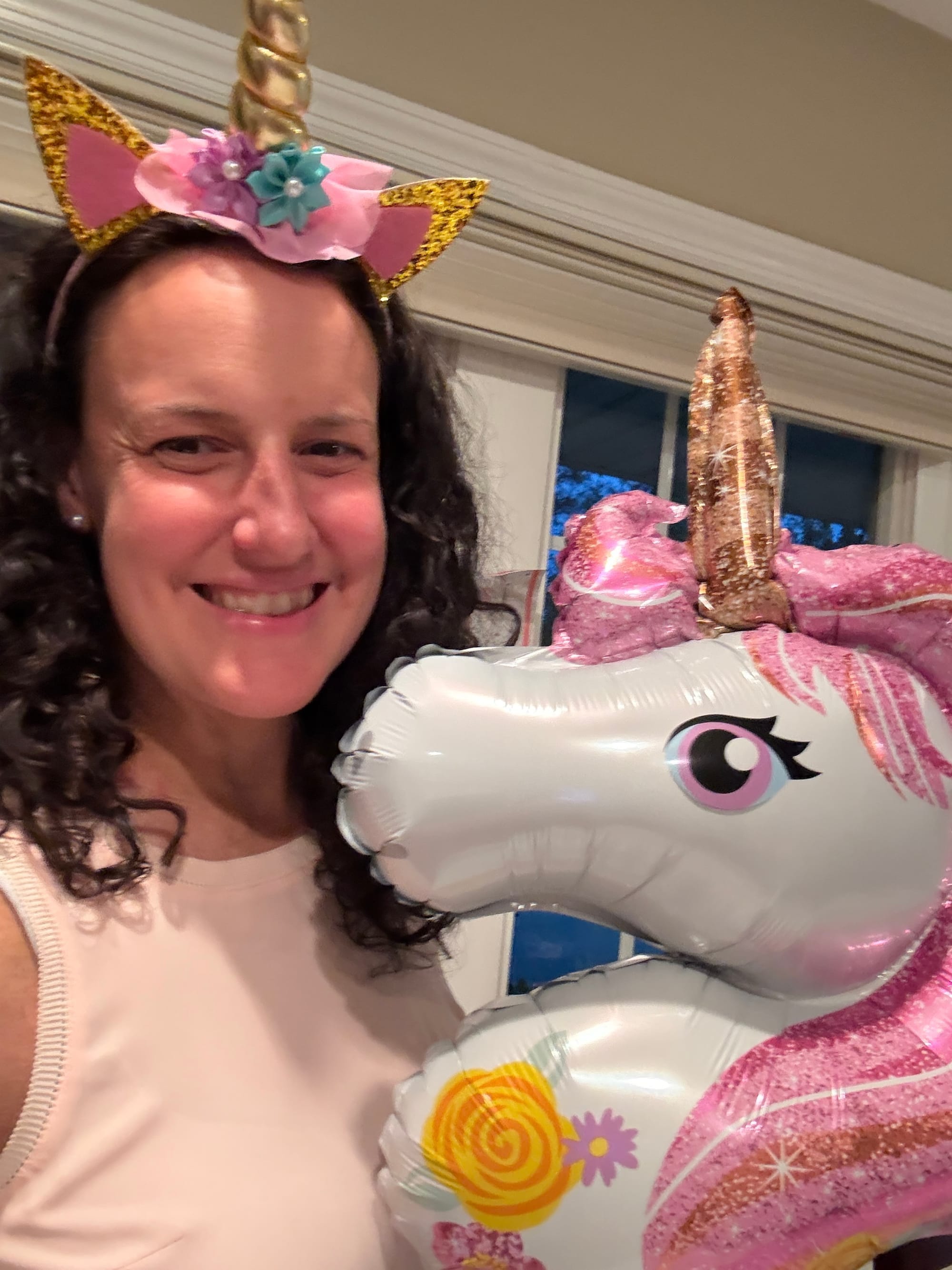
My kiddos and my magnificent other threw me a surprise unicorn themed half-ish birthday last month. It was tremendous fun.
And today is a significant day for one oy my kiddos. They're at an age where being a YouTuber is idolized and where an AI query that makes contact with your name and image is enthralling. They want subscribers, influence, celebrity. They imagine it will yield riches. And in my small corner of the universe, they believe I am famous because AI knows who I am.
I imagine they would prefer this newsletter headshot was of them so that AI could catalog it and it could be retrieved with just a few keystrokes, validating its importance and significance.
A decade ago this month, my poem "The Why I Hate Facebook Poem" was published in the 40 under 40 edition of The Paterson Literary Review and even then, before it was fashionable to detest Facebook, I questioned how my (future) kiddos might feel about my decision to limit their presence on social media. A version of it was re-printed in my book:
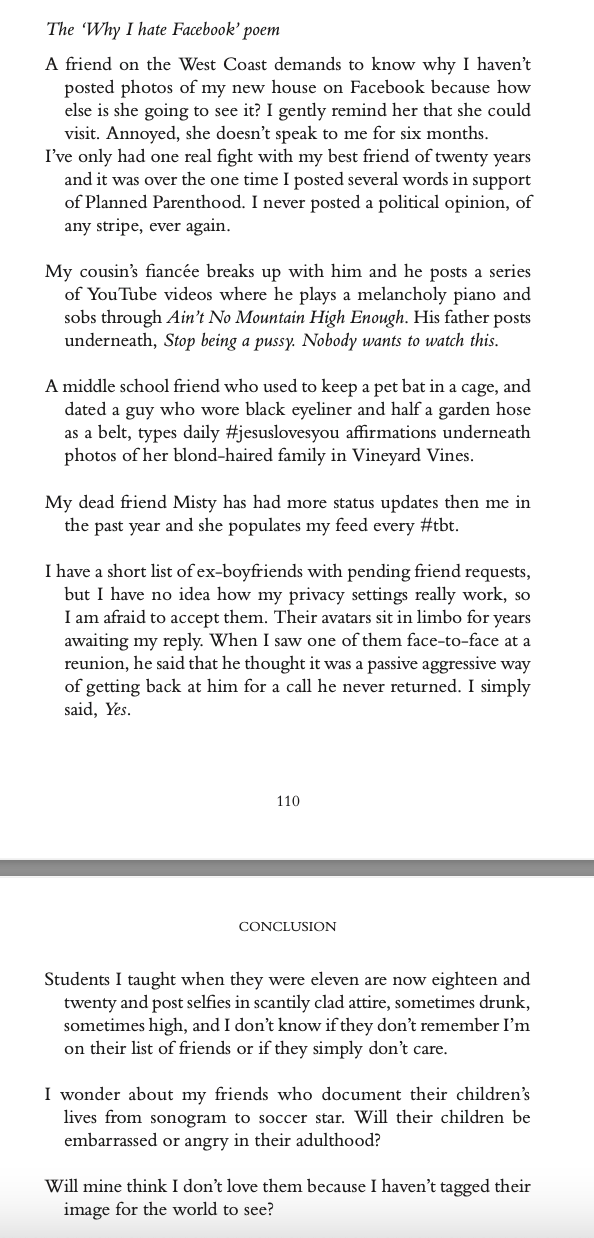
But like I argue in Just Here For the Comments, there are multiple avenues of non-public participation occurring when we read on social media (or social media adjacent sites like newsletters). This small act of sharing my unicorn festooned self will yield tremendous joy for them offline even if the full festivities are not public (to our peers) online.
There is no such thing as privacy from the platform. Any digital photo we take is backed up to the Cloud and/or stored in a repository like Google photos. You can control what your peers see. You can choose to share a photo on social channels and to some degree limit who has access to it. But the platform retains access to your images and depending on the terms of service agreement we all blindly sign to access these sites, we bequeath to them our digital remains.
My students have been writing about how the digital data we create in our lifetime - pictures, emails, texts, posts, videos, search queries, Tinder swipes, etc.- should or shouldn't be preserved. Who should have access to this data? And under what circumstances? Should platforms have the right to sell our posthumous data for profit? Should our families?
They have lots of ideas ranging from digital inheritance outlined in wills and estate planning (many celebrities already do this to limit the possibility of posthumously performing at Coachella for minimal to no compensation to their estate) to updating terms of service agreements to allow account holders to predetermine who should be able to access their accounts.
They are also a bit more mindful of how the data they choose to contribute (even minute interactions like hovers and keystrokes) are stored by the platform that is lurking on them.
Unicorns are beloved because they are rare. We're enchanted by their myth. In the tech world they are the symbol ascribed to companies with billion dollar valuation. Of all of my digital remains, the photos are the most valuable. What if we treated our most valuable digital remains as unicorns? How would that change the way we interact with the internet?
Funding, Collaboration, Visibility
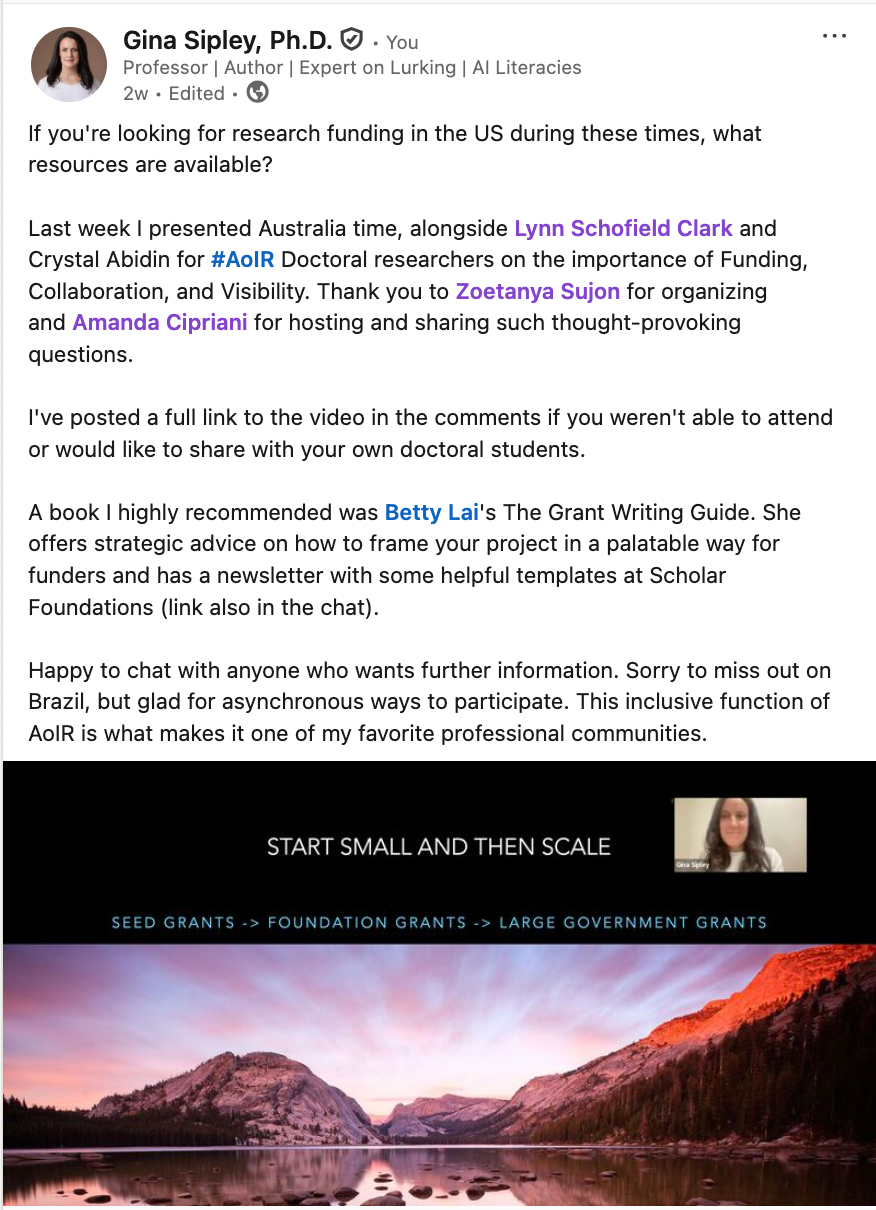
Fall Events Calendar
November 17 - Lit, Live! Sponsored by the Creative Writing Program at Nassau Community College. On campus: 2nd Floor Library. Zoom: https://ncc-zoom.zoom.us/j/94992104068 (reading excerpts from the Miscarried Manuscript)
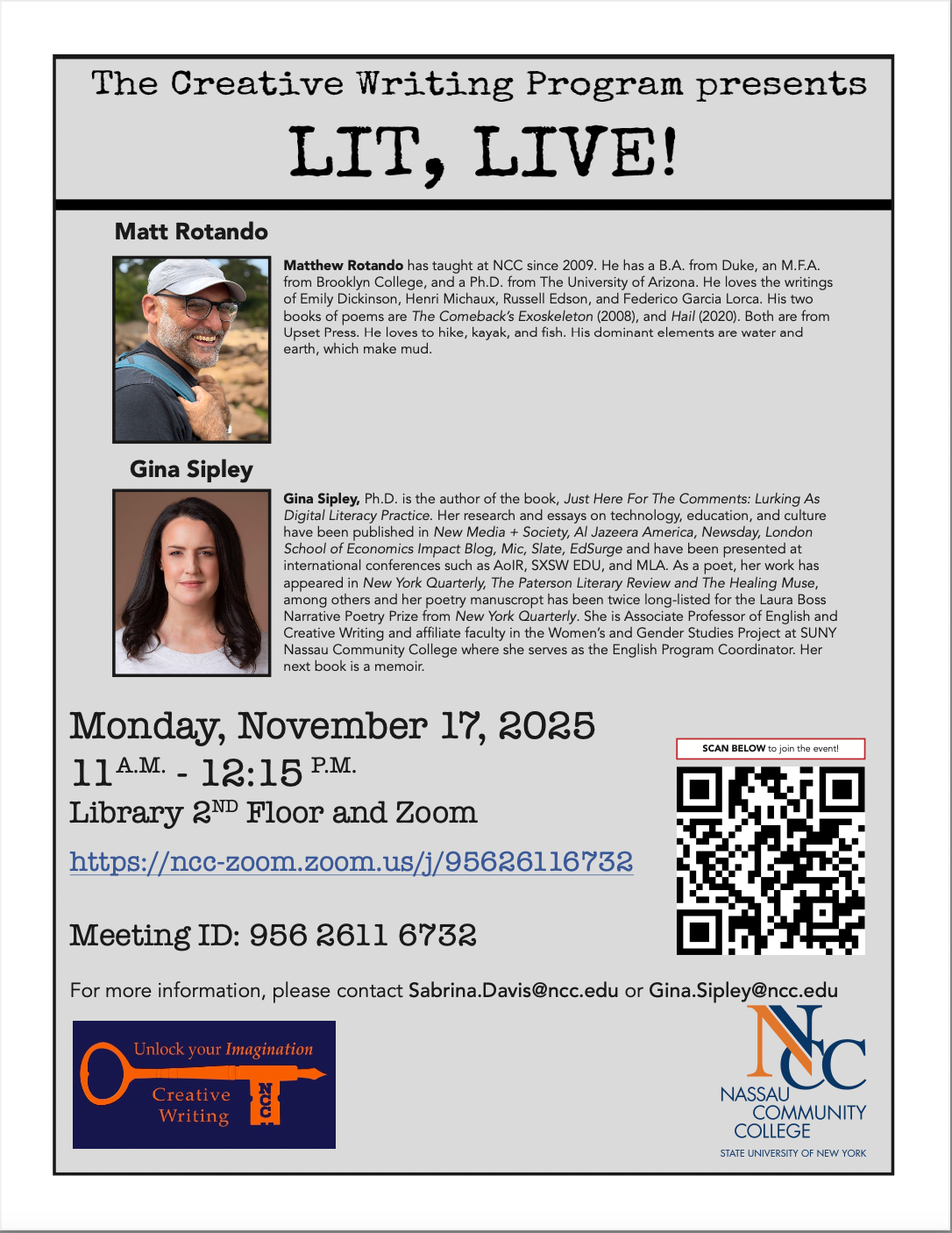
November 21, Long Island Changemakers Podcast with the Non-Profit Connector https://www.youtube.com/playlist?list=PLrCyZ3sOz3y48nANNwtybmnZAhU494wSc (Talking About Literacy Education, Lurking, and Long Island)
New quarterly shelves at Aurora BookShop launching next month.
Thanks for walking beside me,
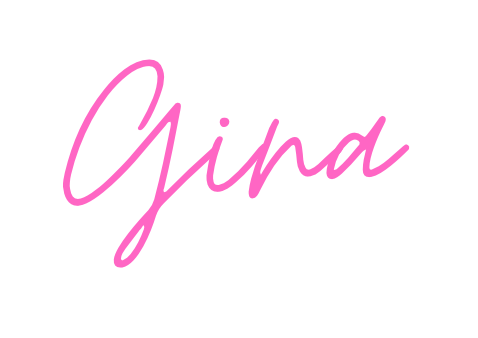
If you know someone who might be interested in receiving this newsletter, please forward and encourage them to subscribe.
